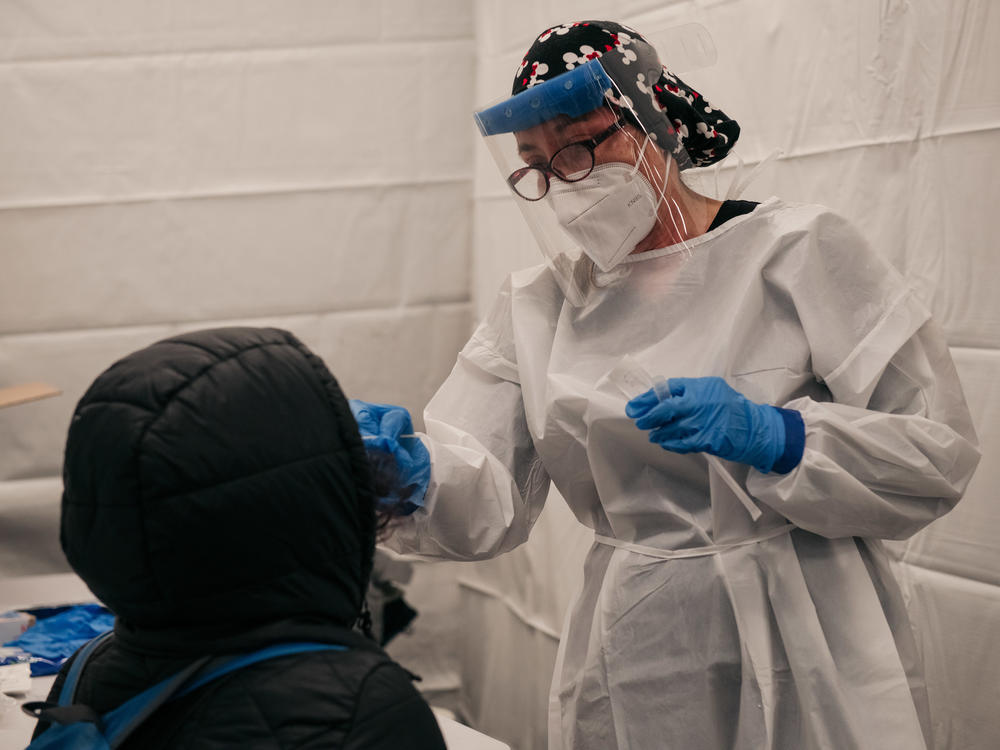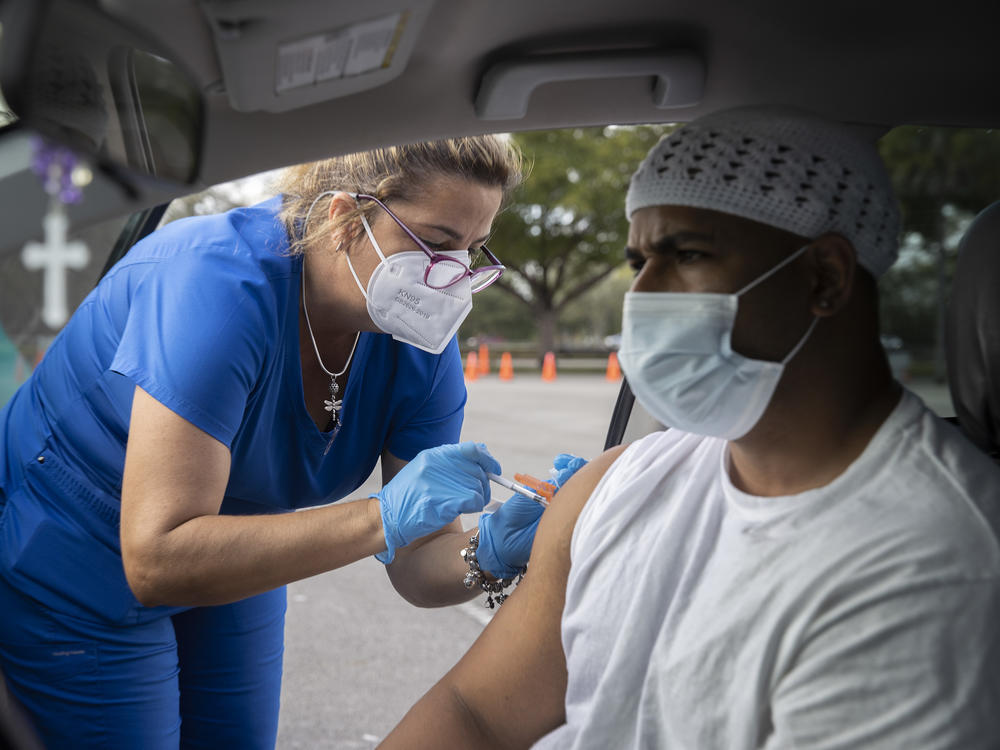Loading...
Section Branding
Header Content
CDC cuts the recommended isolation and quarantine periods for coronavirus infections
Primary Content
Updated December 27, 2021 at 6:41 PM ET
People who test positive for the coronavirus need to isolate themselves for only five days if they don't show symptoms, the Centers for Disease Control and Prevention said Monday. This cuts in half the earlier recommendation of 10 days of isolation.
Data shows that the majority of coronavirus transmission "occurs early in the course of illness," the CDC explained — generally in the one or two days before symptoms begin and two or three days after.
"Therefore, people who test positive should isolate for 5 days and, if asymptomatic at that time, they may leave isolation if they can continue to mask for 5 days to minimize the risk of infecting others," the CDC said in a statement.
The CDC has also updated its recommended quarantine period for people exposed to the virus. It says unvaccinated people should quarantine for five days, followed by five days of "strict mask use." Exposed people who are more than six months past their second dose of the Pfizer-BioNTech or Moderna vaccines, or two months out from a Johnson & Johnson vaccine, should also quarantine for five days.
People who have gotten their booster shot don't need to quarantine after exposure but should wear a mask for the next 10 days.
"The Omicron variant is spreading quickly and has the potential to impact all facets of our society," said the CDC's director, Dr. Rochelle Walensky, in a statement. "CDC's updated recommendations for isolation and quarantine balance what we know about the spread of the virus and the protection provided by vaccination and booster doses. These updates ensure people can safely continue their daily lives."
Dr. Megan Ranney, the associate dean at Brown University's School of Public Health, tweeted Monday that a major reason the federal government altered isolation requirements is due to the economic strain of a full quarantine.
"Our economy is going to shut down if everyone has to isolate for 10 days. Luckily the science backs up the move, at least partially," she tweeted. "On the one hand: I'm all for following the science for the vaccinated & asymptomatic. No reason to keep people home unnecessarily."
Kudos, she said, to the CDC "for recognizing that our knowledge has changed - and the virus has changed" especially for the vaccinated.
Ranney said what would make this decision even safer would be to require a rapid test before ending isolation.
The CDC doesn't currently require this step and rapid, at-home COVID tests have been hard to come by during the omicron surge.
The Biden administration, which has come under pressure for not increasing widespread availability of at-home tests, last week rolled out a plan to set up federal testing across the country. The government will also buy a half-billion at-home COVID test kits and mail them out. But deliveries won't start until January.
The new guidance comes days after the CDC loosened rules for how long health care workers should isolate after infection with the coronavirus, from 10 days to seven days. If there were staffing shortages, that isolation time could be further reduced.
The next day, New York officials followed suit, reducing to five the number of days for health care workers to isolate after a positive coronavirus test. On NPR's Morning Edition on Monday, Dr. Anthony Fauci praised the move.
Five days of quarantine should be enough for health care workers, Fauci said, adding: "That's going to be under consideration of whether or not we want to diminish it" for the general public.
In the U.S. as of Monday, 242 million people have received at least one dose of a COVID-19 vaccine, 205 million are fully vaccinated and 66 million have received a booster, according to the CDC's COVID Data Tracker.
Copyright 2021 NPR. To see more, visit https://www.npr.org.


